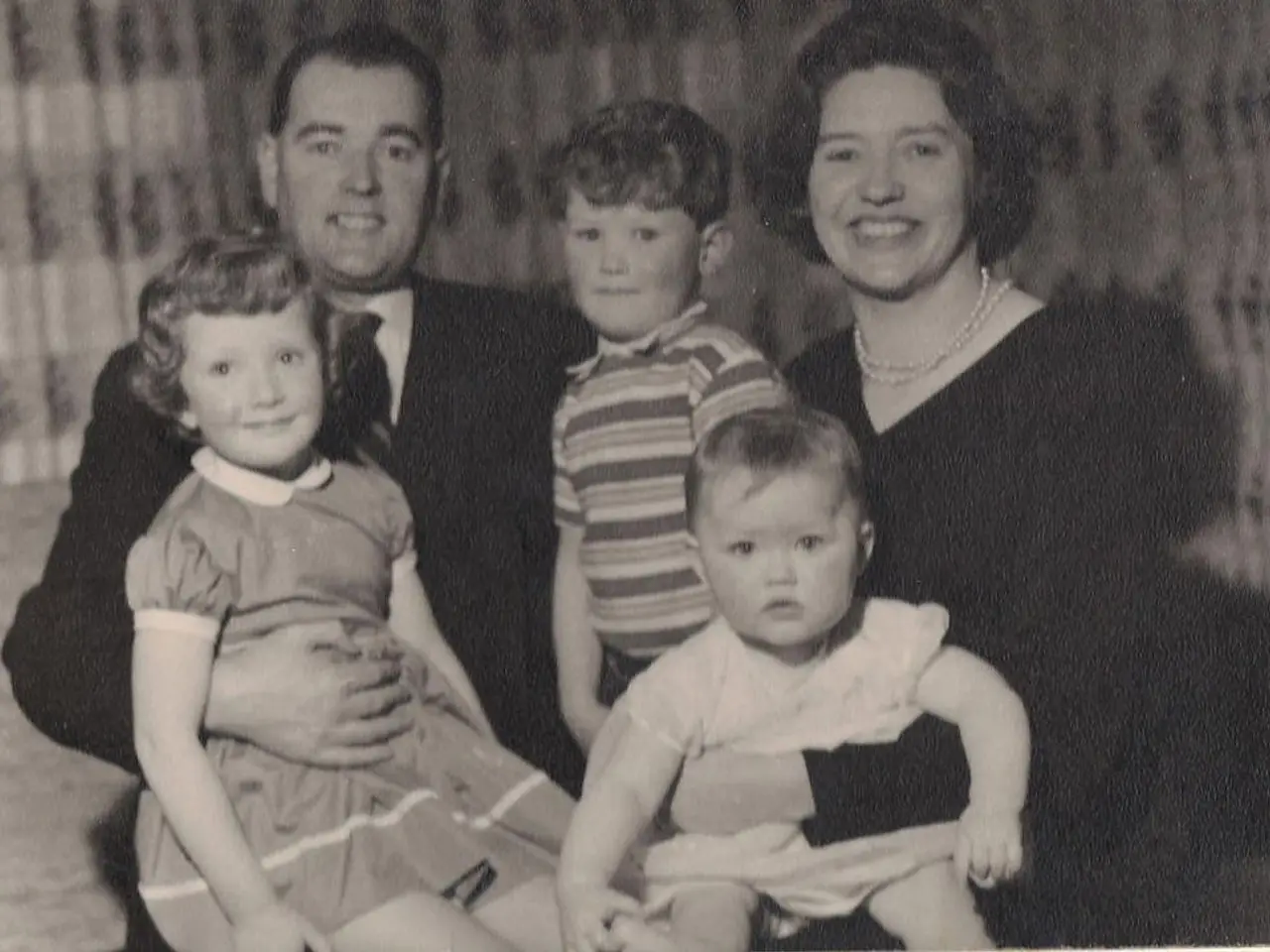Trans Supportive Families Bolster Mental Well-being of Trans Individuals
Chosen families, self-selected networks of supportive friends and allies, play a crucial role in the mental health of transgender people. Often, these support systems arise as a response to non-supportive biological families, acting as survival mechanisms and acts of resistance against normalized expectations [1].
Thematic analysis of interviews reveals that mutual support and emotional support themes are significant in improving well-being. Emotional support from chosen families and community-based groups promotes safety, security, and emotional intimacy for trans individuals [2].
Community health workers play a vital role in connecting gaps in mental healthcare for non-binary and transgender populations. They help bridge the divide between individuals and healthcare providers, ensuring access to trans-affirming practices [3].
Interactions with chosen families greatly improve mental health for transgender people, encouraging welfare and strength. These relationships provide a strong sense of belonging, mitigating the detrimental consequences of prejudice and discrimination in society [4].
Group therapies designed to address gender minority stress are another essential intervention. Structured sessions, often grounded in cognitive-behavioral therapy (CBT) from a trans-affirmative perspective, help individuals process minority stress, improve coping strategies, and build community connections with peers who share similar experiences [5].
Access to peer groups and broader LGBTQ+ community resources provides social inclusion, validation, and informal support networks that decrease anxiety and depression by affirming identity and reducing stigma [6].
The use of gender-affirming language and validating pronouns is another crucial aspect of chosen family support. Consistently recognizing and affirming gender identity through preferred names and pronouns reduces dysphoria and improves psychological well-being [7].
Advocacy for inclusive policies and environments is also vital. Supporting trans-inclusive language, gender-neutral facilities, anti-discrimination policies, and visibility in community institutions creates safer spaces that bolster community support and chosen family cohesion [8].
While medical interventions like hormone therapy and surgery also improve mental health, chosen families and community-based mental health strategies primarily address social and emotional needs, serving as essential complements [9].
Future research should embrace inclusive methods that capture the heterogeneity of experience and focus on how different identities intersect and impact mental health outcomes. Longitudinal studies and qualitative methods that explore individual narratives are recommended for future research [10].
In conclusion, strengthening chosen families and community bonds, family work to improve parental and familial partnership, group therapies designed to address gender minority stress, peer support and community resource engagement, the use of gender-affirming language and validating pronouns, and advocacy for inclusive policies and environments are all key strategies for improving mental health outcomes for transgender individuals. These approaches reduce isolation, buffer minority stress, and enhance feelings of identity safety and social belonging, ultimately leading to better mental health outcomes.
Science has shown that emotional support from chosen families and community-based groups significantly contributes to the mental health and well-being of transgender individuals, acting as crucial safety nets and sources of mental health support [2, 4, 6, 7]. Health-and-wellness interventions, such as peer support groups, group therapies addressing gender minority stress, and advocacy for trans-inclusive policies, are vital in mitigating mental health challenges faced by transgender people [2, 4, 6, 8, 10]. Mental health is profoundly impacted by social connections, including chosen families and supportive communities, and resources aimed at strengthening these connections can foster a sense of belonging and improve overall well-being [2, 4, 6, 10].




